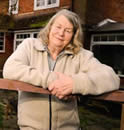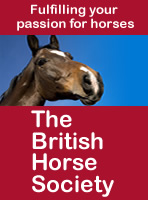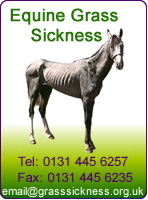
Horseytalk.net/Hoofbeat EXCLUSIVE
RIDER RIGHTS

Hartlbury Common, Worcs
It does help in understanding how Natural England, Local Authorities and the Planning Inspectorate are working together to support each other, rather than the spirit of English law.
Says Maureen Comber
 I have not read it before but it does help in understanding how Natural England, Local Authorities and the Planning Inspectorate are working together to support each other, rather than the spirit of English law.
I have not read it before but it does help in understanding how Natural England, Local Authorities and the Planning Inspectorate are working together to support each other, rather than the spirit of English law.
For example:
1. The assumption by the Inspector seems to be that unless he supports the application from Worcester County Council it may be considered that they are not taking sufficient steps to fulfill their functions. How can that be because they have submitted the application? If that had been refused then they could not have been charged with negligance, but could have been instructed to find other ways of management which would strike a better balance between public access in the first instance and nature conservation.
2. The letter from Fiona Haynes talks much about loose dogs and ground nesting birds but I fail to see then, how loose cattle present less of a problem, especially as they are large heavy beasts which will trample on the nests, unlike the dogs who will probably do no more than sniff. Cattle are equally unselective when it comes to grazing and will eat a rare plant as easily as grass.
3. There has been little emphasis on the fact that Worcester CC or indeed any other Council who 'own' common land, actually have no rights, other than to see that it is not built upon or encroached or in any other way diminished by illegal acts. In other words the care of the common is vested in them if there are no commoners or any other person with a legal interest in the soil. Instead they seem hell bent on doing the very thing that they are supposed to prevent, enclosure, aided and abetted by Natural England and PINS. In the case of Hartlebury it appears that there are commoners, indeed they will have more of a legal interest than either the County Council or Natural England!
4. I remember that back in the 1980's the Conservationists wanted these open spaces designated SSSI's, to be managed as little as possible to promote the interests of the wildlife, such as sand lizards etc, which is what has happened. In fact it is noticeable on such a common where I live, the very reverse of the intention has happened. Leaving the common to overgrow with gorse, bramble and fern at the expense of the heather has impeded public access especially for horse riders. The result is that the sand lizards have moved as wildlife does, and seems to prefer the remaining heathland which is where most people now walk with dogs.
5. In addition where 80 acres of the heathland was illegally fenced in the 1960's and grazed mainly by sheep, there is not a sprig of heather to be seen. As the Inspector notes in para 16 of his report " The decline in traditional practices has led to a change in the open nature of the common, the quality of wildlife and the nature of the landscape and the preservation of historical and archaelogical features." The latter was enclosed by the above mentioned fencing, and as I understand was the only archaelogical feature of interest to the public on the common. I would say that it is not the decline in traditional practices so much as the promotion of the policy by the council's conservation managers, not to do anything at all.
6. The experiment to leave the common alone and untouched has failed miserably because of the lack of interest or intention by the Council managers, to take reasonable steps consistent with the proper exercise of the authority's functions which might mimic the rights of the commoners, to cut and coppice etc. Instead they sought to keep horse riders off the common by denying them the right of access on anything but the bridleways which do not provide for a circular ride. They now seek to remedy by grazing so how contradictory is that? If the condition of commons is declining then it is not reasonable to think that grazing alone can remedy the problem.
7. I notice that Worcestershire CC seem to think nothing of providing access for cyclists even though it is illegal to cycle on common land! But that seems to put the whole issue into context. Partnership working between the Quangos of Natural England, The Planning Inspectorate and the unelected conservation bodies within the County Councils have come to a decision and will implement it whatever the public opinion might appear to be. No democracy let alone localism!
It seems to me that EU Habitat directives are compromising one thousand years of history of this country's laws and customs, unless of course there has been a very long term ambition by successive governments to take control of the common lands of England, our Open Spaces?
To recommend grazing on all sites with heathland potential is far too broad brush.
Says Chris Owlett
I am absolutely baffled as to why the inspector persuaded himself that the provision of gates would improve access for equestrians and wheelchair users. He says it so many times as if he has to hypnotise himself into believing it. The only explanation I can see is that WCC were originally intending unlawfully to put kissing gates, so the inspector concludes that bridleway gates are an improvement. Having looked at some photos of the common on Google images, the topsoil, as you might call it, looks very unstable. Wearing my farming “hat”, I think cattle will do this great damage. Unless the dung can bind up the sand and provide some humus for vegetation to grow in (which isn’t how heaths work, surely), I foresee increased erosion of the soil. It looks more like dune than heath – it looks as if it needs a replanting effort to stabilise the sand, which would surely call for fencing livestock (or the public) out to get it to take root.
One conclusion that could be drawn is that management prescriptions should be carefully focused on the geological conditions. To recommend grazing on all sites with heathland potential is far too broad brush.






